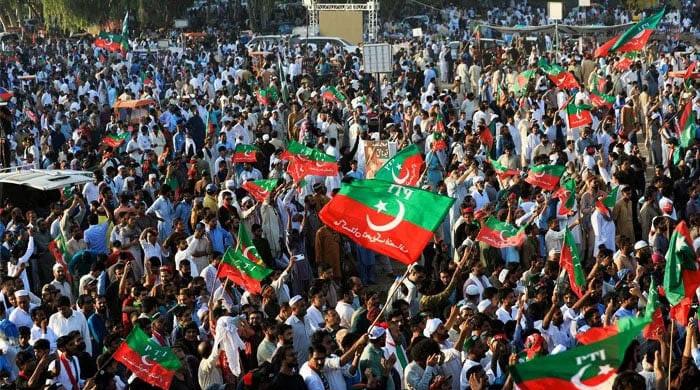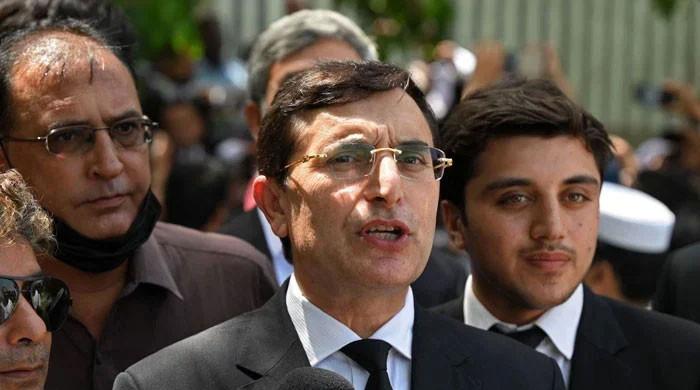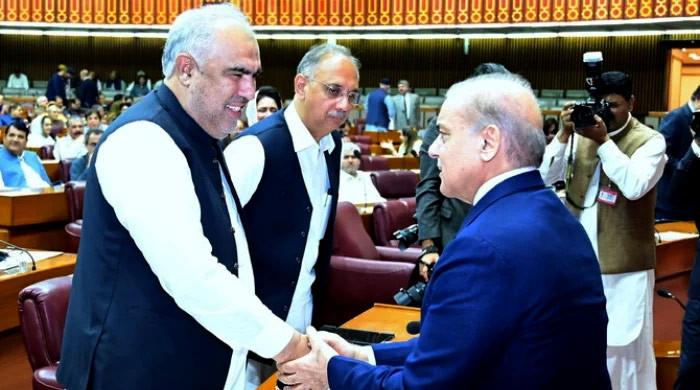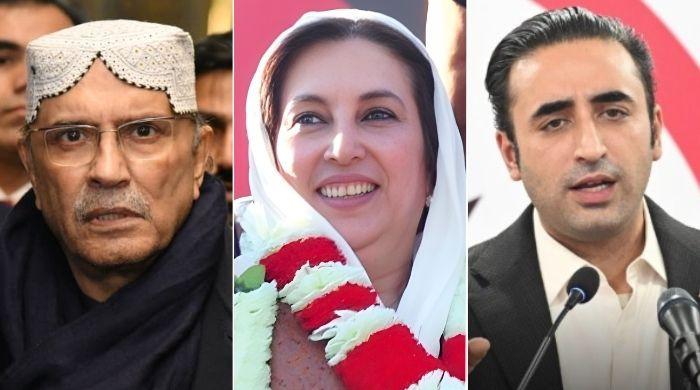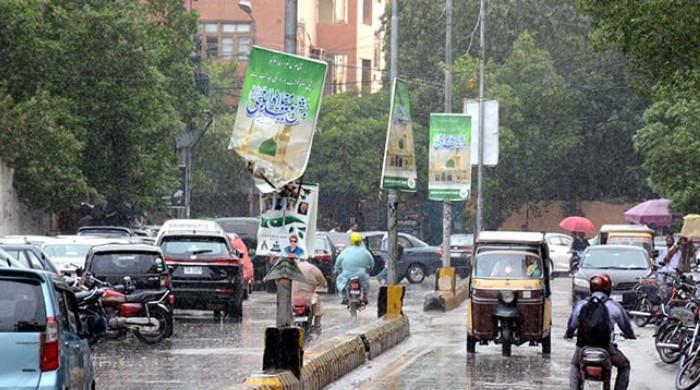CIA chief visits Pindi, meets army chief
ISLAMABAD: The CIA chief John Own Brennan had a clandestine meeting with Chief of the Army Staff General Raheel Sharif on Friday during a short trip to Rawalpindi, which was kept highly secret by...
February 24, 2014
According to well-informed sources, the two key officials discussed a number of highly sensitive issues of mutual interest including the ongoing aerial strikes by the Pakistan Air Force in the tribal areas and the prospects of a likely military operation after the apparent failure of the TTP-government peace negotiations.
The Raheel-Brennan meeting took place at a time when the CIA has apparently stopped its drone campaign in the tribal areas and the PAF fighter jets are targeting the Taliban hideouts there as a tit-for-tat response to the TTP-sponsored terror spree.
Relations between Pakistani and US security establishments had touched the lowest ebb after the May 2011 US raid in Abbottabad that killed Osama bin Laden. But the latest meeting shows the two sides are warming up to each other as the US-led Allied Forces are planning to leave Afghanistan by the end of the year.
The meeting took place a couple of days after the February 19 meeting of General Lloyd Austin, Commander of the US Central Command (Centcom), with General Raheel at the General Headquarters in Rawalpindi. The two generals discussed matters of bilateral professional interest, regional security situation and the scheduled withdrawal of US-led Allied Forces from Afghanistan.
The sources said the two generals might have discussed the possibility of sealing the Afghan side of the border in case Pakistan decides to launch a full-scale military offensive against the Taliban militants in Waziristan.
Approached for comments, the US Embassy officials in Islamabad as well as the ISPR officials in Rawalpindi were tight-lipped about the secret meeting between Gen Raheel and Mr Brennan. While a US Embassy official in Islamabad expressed ignorance about the meeting, an ISPR official said that they were trying hard to ascertain the authenticity of the information but facing difficulties because no senior official was available due to the weekly holiday (Sunday).
However, well-informed sources insisted that the meeting did take place in the garrison town of Rawalpindi after which the CIA chief left Pakistan the same day (Friday). It took place three weeks after the Pak-US strategic dialogue in Washington on January 28, after a three-year break.
Starting with the visit of Prime Minister Nawaz Sharif to Washington in October 2013, there have been increasingly more and Higher-level meetings between the civilian and military leadership of the two countries. This is a positive change from 2011 when ties between Washington and Islamabad had plummeted in the wake of the Abbottabad raid by the US Navy SEALs which had greatly embarrassed the Pakistani establishment.
Explaining the improving nature of relationship between the two estranged allies in the war against terror, a senior government official said on condition of anonymity that the Obama administration fully realised that Pakistan’s help was critical to the future of Afghanistan.
He was of the view that Pakistan always wanted good relations with the US, but not at the cost of its sovereignty, which was continuously being violated by the CIA-led drone attacks in the Pakistani tribal areas. He said the ties between the American and Pakistani security establishments were getting better because the CIA seems to have suspended its deadly drone campaign in Fata.
John Brennan’s meeting with General Raheel was his first ever interaction with the Pakistani Army Chief ever since he had assumed his office. The bosses of the two countries’ spy agencies had seen each other on August 1, 2012 when ISI chief Lt Gen Zaheerul Islam had visited Washington for talks with the then CIA director David Petraeus.
Following the November 1, 2013 killing of TTP ameer Hakimullah Mehsud and the subsequent suspension of the Nato supply routes from Pakistan, the Pentagon chief Chuck Hagel travelled to Islamabad on December 9, 2013 in a bid to restore the relations. Hagel also met General Raheel.
John Brennan was made the CIA chief on March 7, 2013. Previously, he had served as President Obama’s chief adviser on counter-terrorism. He had joined Obama’s National Security Council after spending 25 years in intelligence community and a career which saw him rise steadily up the ranks of the CIA.
Brennan, who has played a key role in US efforts to disrupt al-Qaeda since 9/11, had advised Obama to launch a raid on Osama’s compound in Abbottabad. He enjoys full trust and confidence of President Obama and has been involved in virtually all major national security issues during the past five years.
Within the Obama administration, John Brennan has led the transformation of the US approach to counter-terrorism from that of a ground war in Afghanistan to targeted strikes against the most wanted terrorists, often involving the use of drones, especially in Pakistan and Yemen.
To recall, Imran Khan’s Tehrik-e-Insaf Party had named Brennan in an FIR lodged with the Hangu Police in December 2013, seeking registration of a case against him and the Islamabad station chief of the CIA [Craig Osth] for killing Pakistani civilians in drone attacks in the tribal areas and thus “waging war against the state of Pakistan”.
John Brennan has visited Pakistan at a time when the CIA-led drone attacks in the tribal areas of Pakistan have been cut back sharply after the Nawaz Sharif government had asked for restraint while it pursued peace talks with the Tehrik-e-Taliban Pakistan.
In fact, the CIA has not bombed Pakistan since December 25, 2013 for almost 58 days – the longest pause in many years. Interestingly, however, while there was not even a single drone attack in Pakistan during the last two months, the Taliban had intensified their terrorist activities despite the fact that the Nawaz government was holding peace talks with them.
As the Taliban refused to stop their terrorist activities, the fighter jets of the PAF had to launch surgical strikes against the terrorists’ hideouts in the tribal areas, which are now being targeted almost every other day.




